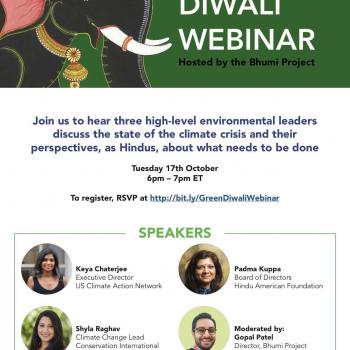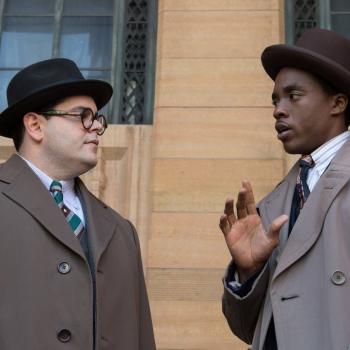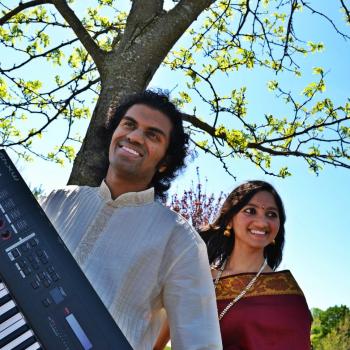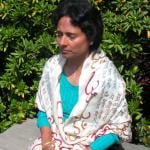Equality is what is taught in all our traditions – we must move beyond the divisions created by caste and race.
In 2012, I was honored by the City of Troy to have the opportunity to speak about the legacy of Dr. Martin Luther King, Jr. and welcome everyone to the annual celebration that we organize in our community to reflect on where we are today and where we need to go.
This year’s celebration starts off with a welcome by Prasanna Vengadam, founding President of South Asian American Voices for Impact. An Indian American woman like me, she will be leading the symbolic Unity Walk, with Troy School District students around Athens High School – reminding me of Zack Kilgore and Skye Curtis who walked with me – fellow-activists in working to create a beloved community. Zack and Skye had taken a stand in the local high schools: that we should be inclusive of all, regardless of sexual orientation.
Troy is a city with a high South Asian population – about 10% of our students speak (or hear) one of the many Indian languages in their homes. It is fitting that Indian Americans like Prasanna and me revive the connection between King and Gandhi, cementing the relationship between the black community and the brown one. And so it makes sense that in our nation’s capital, African Americans commemorated Dr. Martin Luther King Jr.’s birthday, on Wednesday, January 15, 2014, by raising the human rights issues faced by the Dalits of India. Prominent African Americans joined U.S. Congresswoman Eleanor Holmes Norton, Congressional members and staff, and others to sign “The Declaration of Empathy” which addresses the modern-day oppression of the Dalit people of India. The Hindu American Foundation, on whose Board I serve, released a report a few years ago seeking an end to caste-based discrimination, as part of our human rights advocacy efforts.
Hinduism, or Sanatana Dharma, is a rich and dynamic collection of hundreds of spiritual and philosophical traditions that are based on certain essential, core tenets. Its transcendent insights into the existential questions of humanity — the meaning of life, why we are here, fate versus free will — have led to a profound and global embrace of such Hindu concepts as religious pluralism, yoga, meditation, ayurvedic healing, reincarnation, karma, environmentalism, the celebration of the divine feminine, and vegetarianism. Yet, even as Hindu precepts are ascendant in contemporary discourse, Indian citizens, Hindus in the diaspora, and many Western seekers eager to immerse themselves in the Hindu way of life, see a glaring dichotomy in the vast gap between the religious teaching of divinity inherent in each being and the continued social reality of discrimination and inequality in parts of Indian society predicated on the “caste” of one’s birth – a striking contrast between Aham Brahmasmi (“I am that Divine”) and untouchability.
In publishing this report, titled Hinduism: Not Cast In Caste, HAF sought to focus on certain key themes:
- Caste-based discrimination and a birth-based caste hierarchy are not intrinsic to the Hindu religion.
- Caste-based discrimination does exist in many parts of India today.
- Caste-based discrimination fundamentally contradicts the essential teaching of Hindu sacred texts that divinity is inherent in all beings.
- Contemporary Hindu spiritual leaders are actively promoting authentic interpretations of Hindu sacred texts, affirming that the solution to caste-based discrimination lies in an adherence to core Hindu teachings.
- Representative democracy, government policies, and urbanization/economic liberalization have wrought a sea change in caste equations in modern India, but the matter is complicated by the emergence of caste-based politics.
- Caste-based discrimination is being exploited by multi-national evangelical and missionary organizations whose ostensibly humanitarian and development goals are too often intertwined with predatory proselytization and conversion.
This week’s Dalit Freedom Network (DFN), “The Declaration of Empathy” event in DC was a collaborative effort – Hindu minister Madana Mohana Das spoke on behalf of his organization Gye Nyame, Inc. He stated that untouchability is born out of individuals who have distorted the religious message of equality, and urged all individuals to stand up for Dalits. Congresswoman Eleanor Holmes Norton acknowledged that the Indian government has taken many steps to fight untouchability, but argued that more efforts are needed. Unfortunately, DFN is championed by those who have no interest in organic Hindu solutions and those whose missionary interest is best served if no Hindu solution arises. This is disappointing; as is the simplistic comparison of apartheid to untouchability, that many people use in bringing up the issues of Dalits. The political realities are more than skin deep; the historical issues of how caste came into being and is being perpetuated are much more complex: the employment-based kula and jati of a feudal era, colonizers using casta (a Portuguese term) to divide and conquer, divisive vote banking in the India we know today. But whatever our differences, I truly hope that DFN and HAF are on the same page regarding ending caste-based discrimination and creating a more integrated, egalitarian and pluralistic community. I hope that someday, people of all religions and colors – black, brown, white, whatever – will come together across these differences, and collaborate to build that beloved community.















